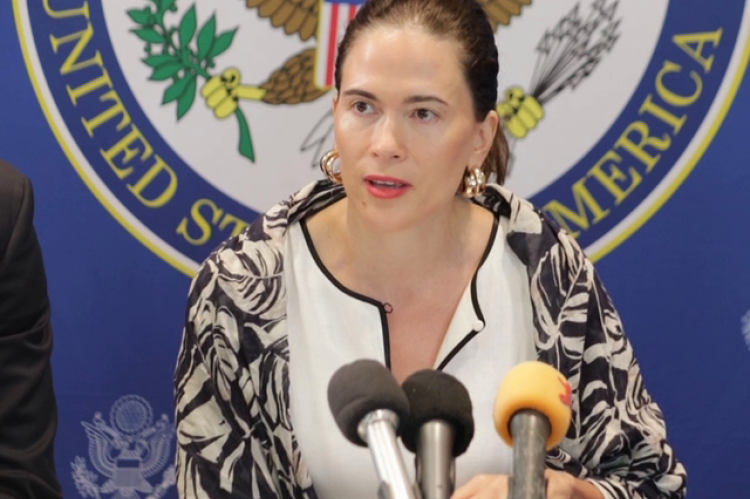U.S.-Belize Partnership Regional Response to Migration and Security Challenges
U.S.- Belize Partnership Regional Response to Migration and Security Challenges
When high-profile government officials from powerful nations visit smaller, less developed countries, skepticism often arises. Some view these visits as opportunities for "arm-bending" tactics, where large nations appear to contribute while relying on smaller nations to shoulder the bulk of the burden. In the case of the recent U.S. delegation's visit to Belize, questions surround their contributions to address regional challenges, especially in the context of migration and security.
Migration and Funding for Belize's Amnesty Program:
In 2020, the U.S. State Department's Bureau of Population, Refugees, and Migration allocated five million U.S. dollars to Belize through international partners. A significant portion of this funding was designated to support Belize's amnesty program, aiming to regularize the status of irregular migrants. While it was initially anticipated that up to forty thousand irregular migrants would benefit from the program, only slightly over twelve thousand applications were received.
This raises questions about the efficacy of such funding and whether it represents a genuine commitment to addressing migration challenges or merely a financial contribution to push Belize into managing the issue. However, during the U.S. delegation's visit, Mileydi Guilarte, Deputy Assistant Administrator at the U.S. Agency for International Development (USAID), defended the initiative, asserting that Belize has become a regional model for addressing migration challenges comprehensively and sustainably. She emphasized that the U.S. is committed to identifying gaps and challenges and providing assistance where necessary, reframing the program's outcome as a model for the region rather than a failure.
USAID's Additional Support for Migrants:
During the delegation's visit, USAID announced an additional grant of six hundred thousand U.S. dollars (approximately 1.2 million Belizean dollars) to the International Office of Migration in Belize. These funds are intended to improve access to healthcare, education, and overall livelihoods for migrants. The move underscores USAID's ongoing commitment to assisting Belize in addressing the needs of migrants, beyond just legal status, by facilitating their integration into host communities.
Belize's Role in Regional Security:
The U.S. delegation's visit also delved into regional security concerns, particularly regarding Haiti's instability. Belize is currently exploring the possibility of providing personnel to support a potential multinational force in Haiti, although no concrete commitment has been made yet. This initiative highlights Belize's willingness to play a role in addressing security challenges in the wider region.
Deputy Assistant Secretary of Defense Danile Erikson acknowledged the deepening insecurity in Haiti and the challenges faced by the Haitian government and police in dealing with criminal gangs. The U.S. is engaging in multilateral conversations with various countries, both within and beyond the region, to collectively address the crisis in Haiti. While Belize's involvement is being considered, firm plans have yet to materialize.
In summary, the U.S.-Belize partnership, as demonstrated during this high-level delegation's visit, addresses critical issues such as migration and regional security. While questions about the efficacy of funding and contributions persist, Belize's proactive role in regional challenges and the U.S.'s continued engagement through USAID showcase a commitment to finding sustainable solutions to complex issues in the region.
- Log in to post comments

